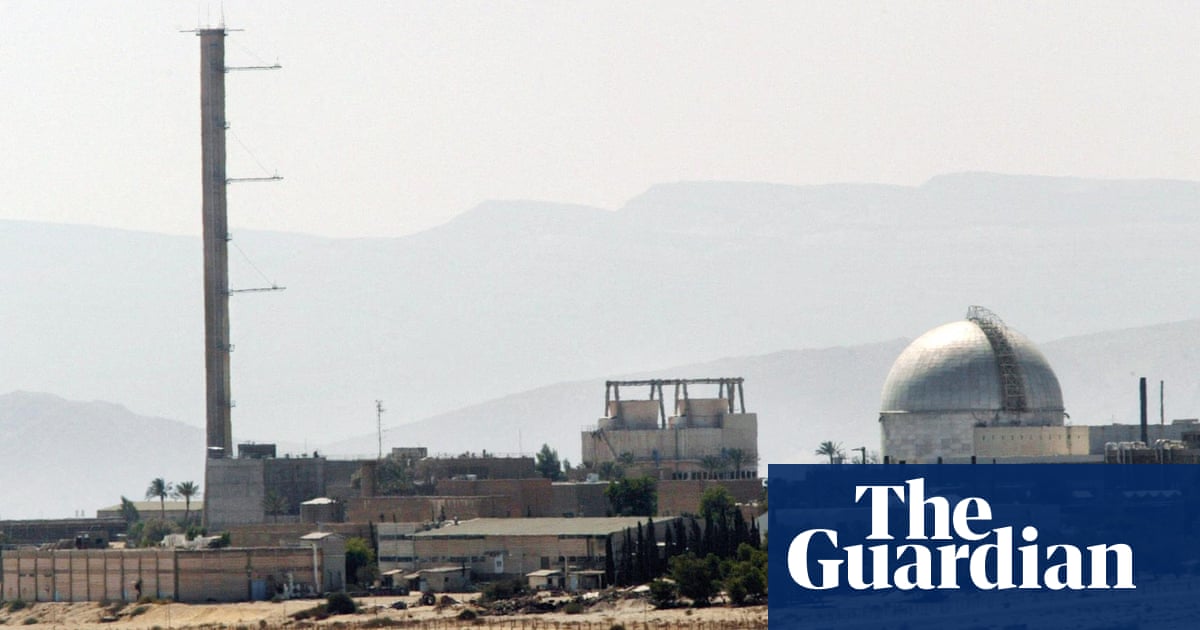I agree with Simon Tisdall’s opinion (Trump, Netanyahu and Khamenei, three angry old men who could get us all killed, 15 June). The reckless decisions of these leaders did not take place in a vacuum. As Tisdall writes: “The roots of major conflicts often reach back decades – and this is true of the Israel-Iran vendetta, which dates to the 1979 Islamic revolution.” I suggest reaching further back to the 1950s, when Israel built itsnuclear facility in Dimonaand Charles De Gaulle decided to end French support unless Israel joined the non‑proliferation treaty (NPT).
After John F Kennedy’s ultimatum for safeguards, Israel accepted six inspections, until Richard Nixon and Henry Kissinger condoned its nuclear status outside the NPT, provided Israel maintained nuclear ambiguity, playing down its strategic advantage. Israel concealed its nuclear status, refused to adhere to the NPT as contrary to its national security interest, and adopted the “Begin doctrine” of counter-proliferation, envisaging preventive strikes against Middle Eastern countries installing nuclear reactors that might produce nuclear weapons. Accordingly, it destroyed Iraq’s and Syria’s nuclear reactors (in1981and2007respectively) and, in cooperation with the US, damaged the Iranian nuclear facilities with the Stuxnet malware (which leaked and spread).
Ambiguity allowed Israel to avoid legal restrictions on American military and economic support towards nuclear-armed states (except NPT members). The current crisis arises because, as Tisdall writes, Donald Trump trashed the previous nuclear agreement (which Tehran had respected) and fell into Benjamin Netanyahu’s trap. If, eventually, a nuclear showdown is to be avoided in the Middle East, all countries must have the right to develop nuclear energy for civil purposes and the duty to submit to NPT rules. Even if the present conflict ends, unless Israel joins the NPT, Iran will eventually have the bomb. In western media there is a conspiracy of silence on this.Corrado Pirzio-BiroliBrussels, Belgium
Jonathan Freedland, noting Israel’s longstanding contention that Iran’s acquisition of nuclear weapons would constitute an existential threat, rightly concludes that the latest extension of conflict in the Middle East may paradoxically lead to nuclear proliferation (Netanyahu attacked Iran to avert an ‘existential threat’. He may have made it worse, 13 June). He cites North Korea as an example, for Iran, of a country that has ensured its safety by retaining nuclear weapons, but here the theory of deterrence breaks down. If North Korea is secure, why not Israel, which has significant nuclear weapons capability?
If it is contended thatIranis a rogue actor, unwilling to follow the “rules” of mutually assured destruction, why is any nuclear-armed country safe from rogue actors? Every effort must be put into developing an internationally enforceable inspection, control, reduction and elimination regime to whichallcountries are subject, rather than unilateral pre-emptive acts, with all their appalling and unpredictable consequences.Dr Anthony IsaacsLondon
Re “three angry old men who could get us all killed”, what about Vladimir Putin? That would make up the four horsemen of the apocalypse Simon Tisdall predicts.Hubert CasselFarnham, Surrey
Apropos your report (Israel and Iran broaden strikes during third day of escalating war, 15 June), it has to be said that Iran was quite content with its nuclear deal with the west. In fact, the nuclear deal was President Barack Obama’s biggest gift to both the US and Iran. But President Donald Trump, instead of building on the deal via establishing diplomatic relations, decided to crush it, thereby turning the clock of the US-Iran relations back to the pre-2015 level.
Furthermore, Washington, not merely content with withdrawing from the deal, chose to spin the alleged Iranian nuclear threat into a rationale for military action against Iran. Was it not a similar Iraqi nuclear threat that President George HW Bush evoked to wincongressional authorisationfor US military action against Saddam Hussein, resulting in the deaths of more than 461,000 people, including 4,598 US soldiers and 179 British service personnel?Randhir Singh BainsGants Hill, London
Have an opinion on anything you’ve read in the Guardian today? Pleaseemailus your letter and it will be considered for publication in ourletterssection.
